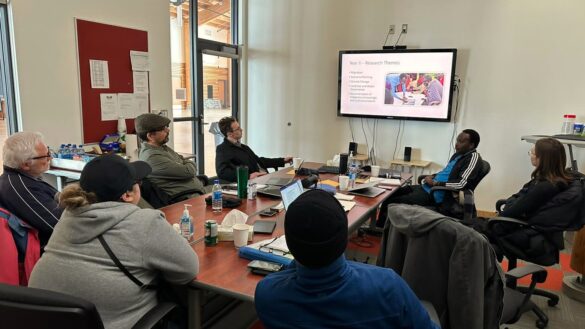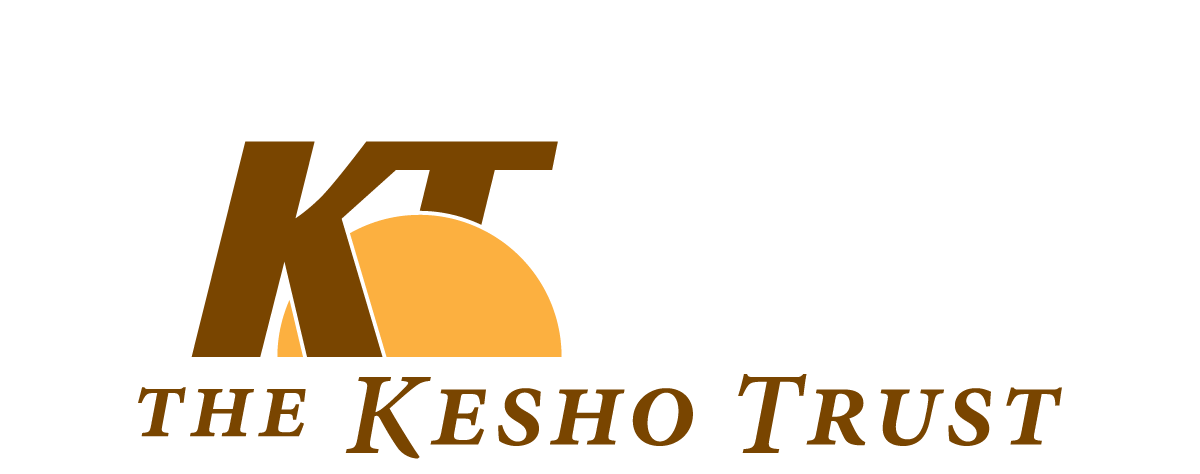Year 1
Preparatory Meetings – June 2021
Meetings were held with village leaders and elders in both Elerai Village and Enguserosambu District to review the project as a whole and the research activities to be carried out in the study areas. These meetings provided the opportunity to explain the nature of the specific activities planned and their link to the project objectives as well as to gather input from the communities on their needs and priorities and address any concerns. The communities were very receptive to the project plan and offered their cooperation and assistance in its implementation.
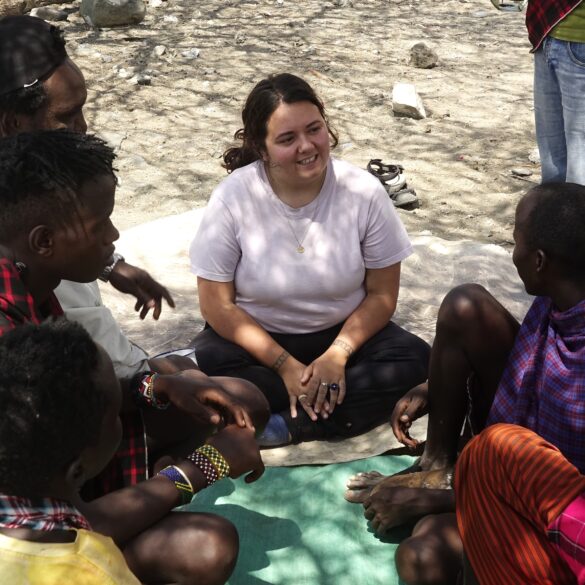
UVic Masters Student – September 2021
The IKG was planned to support one masters level student to study at the University of Victoria and to focus their research on indigenous issues in Tanzania. Through our advertising and application process, Kate Herchak was selected and began her studies in September, 2021.
Masters Student at UDSM – November 2021
Originally the IKG project intended to support field research related to our project themes by currently registered graduate students in Tanzania. However, the applications received did not adequately meet the criteria. Instead a candidate for a Masters program at the University of Dar es Salaam, Julius Paringo, was selected from our project team. Julius registered in a GIS program at the university and started in November, 2021. His focus was on assessing and mapping land use change in the Elerai area of Kilindi District.
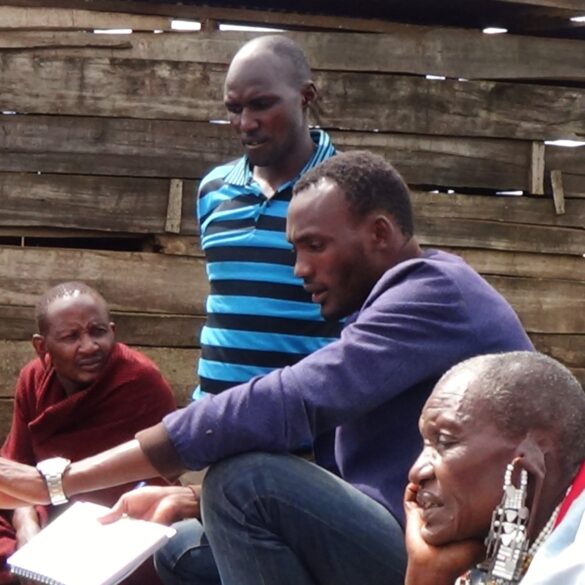
Research Program Year 1 – October 2021
The IKG research program for year 1 was structured around the 6 research themes. Surveys were planned for a representative sample of households in both study areas – Elerai and Enguserosambu District. The surveys documented basic demographic information of the households along with information and attitudes related to household assets, livelihoods, migration, environmental and health risks and mitigation, social and traditional influences, and climate change impacts.
In addition key informant interviews and focus groups were conducted specifically to more fully investigate issues concerning community needs and challenges. Such data was intended to support community action plans aimed at improving infrastructure and services and their adaptability to climate change impacts.
Community Researchers – November 2021
To implement the research program, 4 local community researchers were identified in each study area. The selected individuals came together for a training session in Arusha guided by the project supervisors, Emmanuel Kileli (Elerai) and Samwel Nangiria (Enguserosambu).
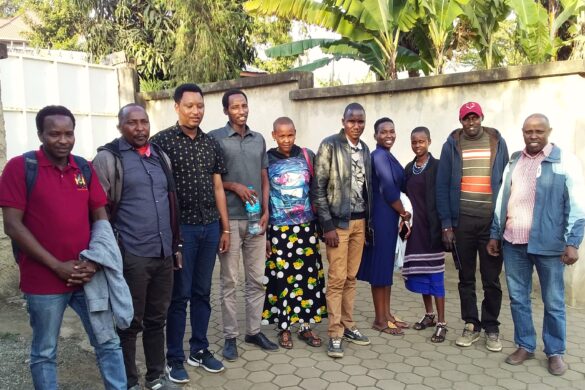
Annotated Bibliography – January 2022
The IKG identified six areas of research to assist in addressing the intended goals of the project: a) a livelihoods assessment to better understand the local Maasai economy; b) an ecological and climate change impact assessment to determine the community perceptions of environmental vulnerability and its impact on livelihoods; c) an assessment of ecotourism potential, expectations and impacts; d) community mapping to identify and document cultural and land-use sites of importance; e) a needs-assessment to identify community challenges and priority development actions; and, f) a scenario planning exercise to identify community issues, key drivers of change, current trends, and the development constraints.
To support the project team in their investigation of these themes and to assist in the development of research papers resulting from the field research, an annotated bibliography was produced forming part of the initial research activities of the project. It focused heavily on understanding the Tanzania context. While cross border studies were helpful, the analysis looked specifically at the research context of Maasai communities in Tanzania and along the border with Kenya. It drew together and discussed the related documentation from selected published literature on the impacts of a wide range of influences on the cultural traditions and lifestyles of the Maasai people.
Follow this link for a copy of the annotated bibliography.
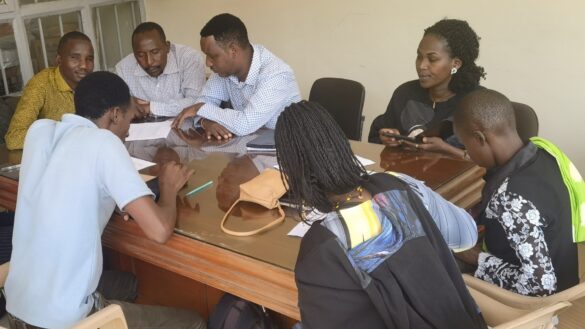
Analysis workshop – March 2022
On completion of the data collection, the community researchers came together again to review and compare the data from both study areas and to identify trends to present to the project team in Canada. They also discussed problems encountered in the implementation of the surveys and directions for data collection in year 2.
UVic Workshop – April 2022
The Canadian members of the project team met at UVic to review the data collected in the Tanzania study sites and to assess needs and directions for year 2. The workshop was also a time to plan for a team study tour in Tanzania to be conducted in August.
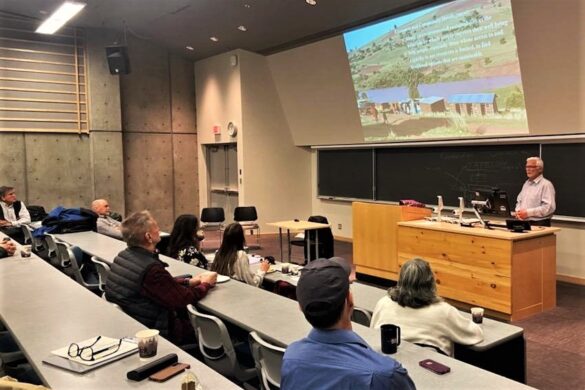
Year 2
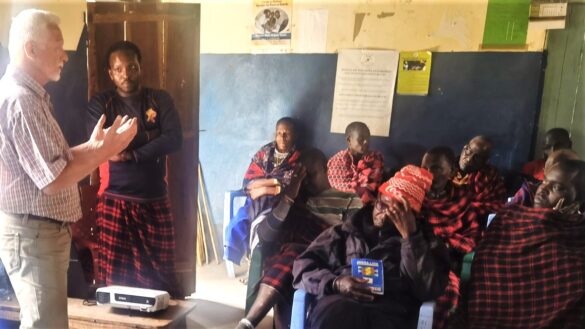
Feedback to Local Communities – July 2022
The Tanzania study site coordinators reported back to their communities on the results of the year 1 data collection. It was an opportunity not only to inform but to solicit input and reflections on the data. Plans for the year 2 research were reviewed and preparations for the upcoming study tour by the project team from Canada were also discussed.
Study Tour – August 8 – 21, 2022
Nine members of the Canadian project team participated in the 2 week study tour: Carcross Tagish First Nation – Sean McDougall, Tracy Camilleri, Sheena Johns, Jewel Davies and Navaro Davies; Kesho Trust – Erik Val and Bruce Downie; UVic – Crystal Tremblay, Kate Herchak. Two Tanzanian study area coordinators, Emmanuel Kileli and Terere Tutayo also joined the tour. The team travelled to both study areas to learn about local traditions and conditions as a means of putting the field research into context. A field report of the study tour, also prepared by Erik, is available through this link: Study Tour 2022. A video describing the project and tour was also produced and is featured on this website – IKG video.
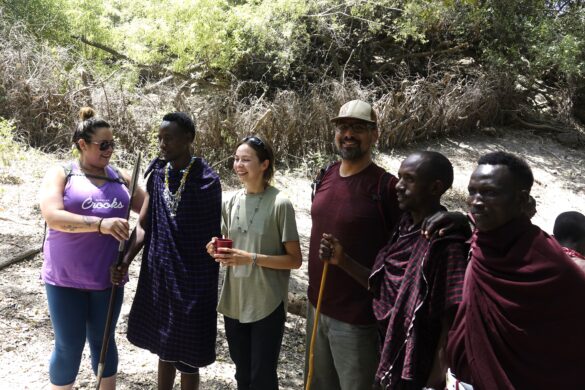
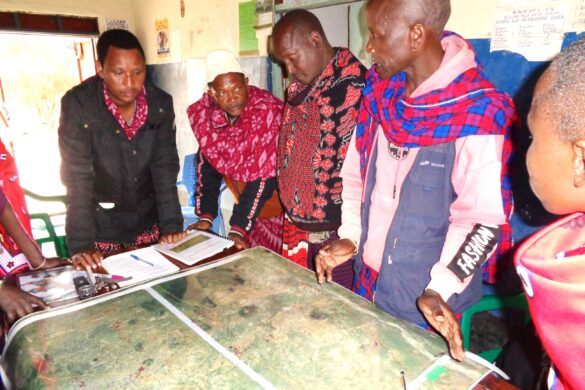
Research Program Year 2 – September 2022
Following the project team tour, Erik and Kate stayed behind in Elerai to conduct research: Kate to conduct her thesis research on youth engagement in livelihoods through a process of photovoice; and Erik to coordinate the traditional land use mapping effort in Elerai. The research program for Year 2 also included more in-depth work on migration and community response to climate change. As for Year 1, on completion of the year 2 data collection, the Tanzania team came together again to review the results and prepare compilations for submission to the team in Canada. Erik returned to Tanzania for the workshop specifically to follow up on the traditional use mapping effort.
Closing Workshop – Carcross, Yukon – March 2023
A closing workshop for the project was held in Carcross, Yukon where team members assembled to review the outcomes of the project. Emmanuel Kileli, coordinator from Tanzania, attended the workshop to facilitate analysis of the data gathered during the two years of research. The team also had the opportunity to discuss prospects for future collaborations and specifically their intention to apply for the subsequent stage of SSHRC funding – the Partnership Grant.
